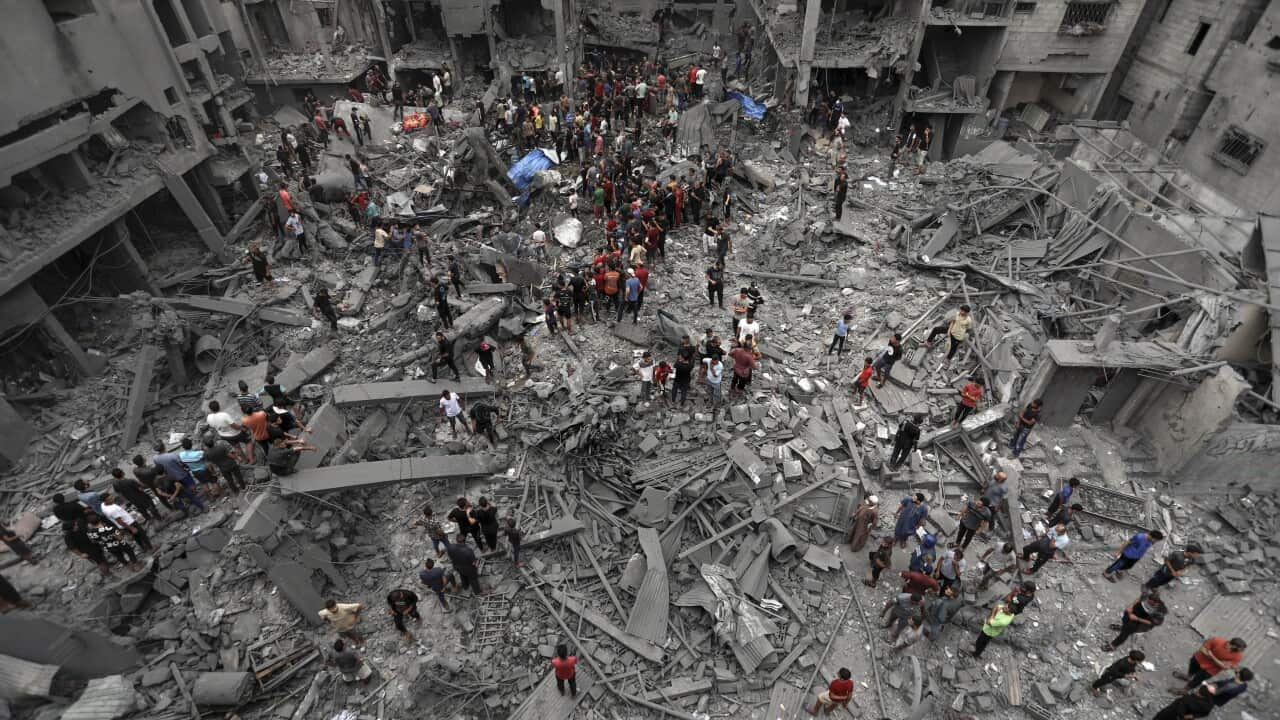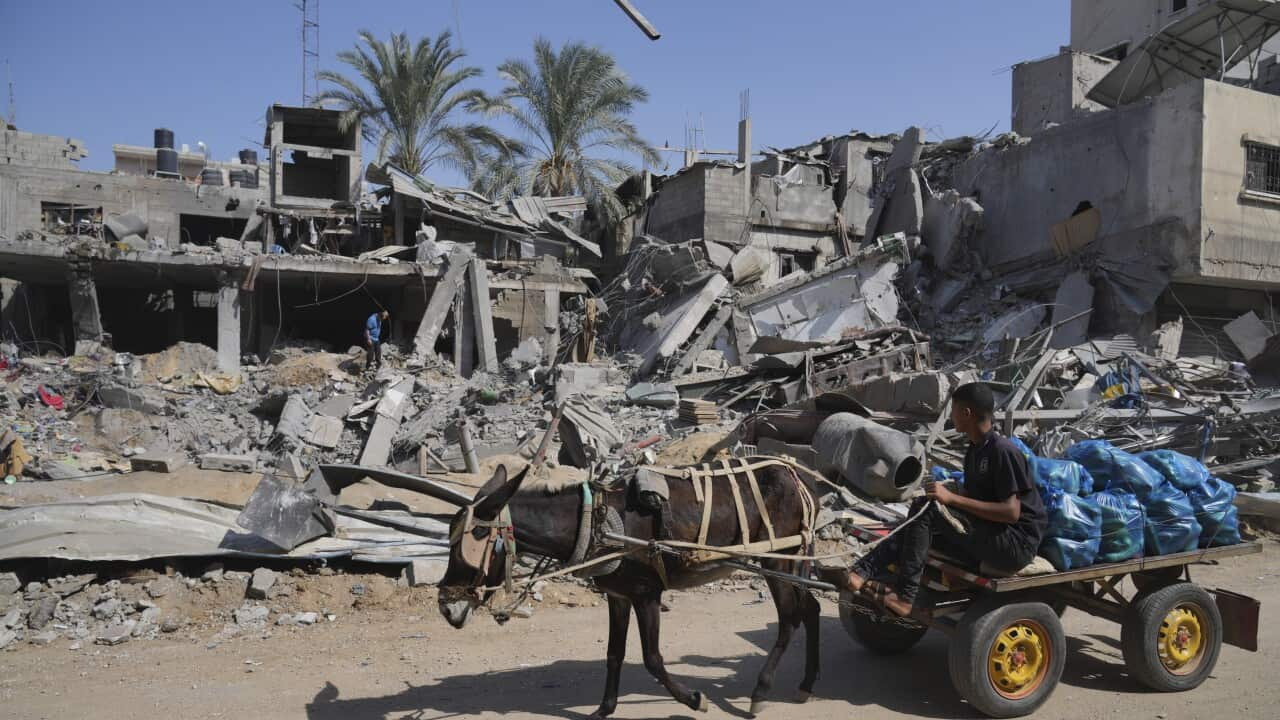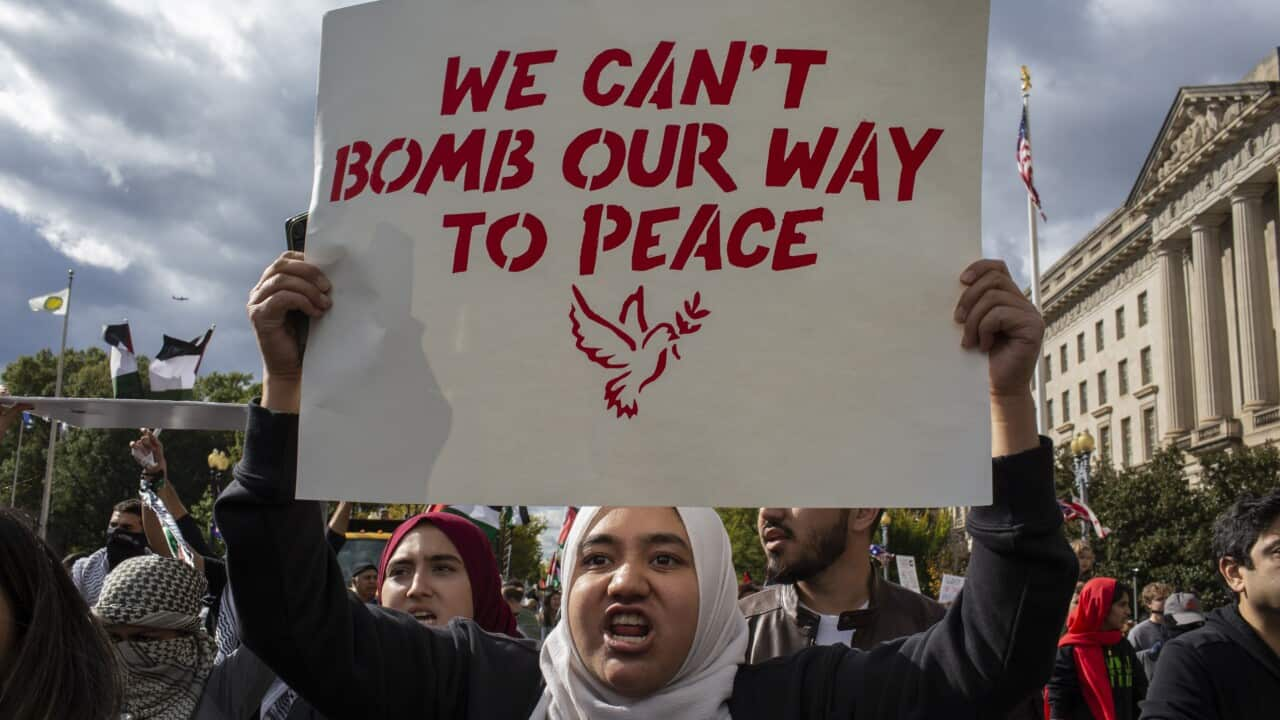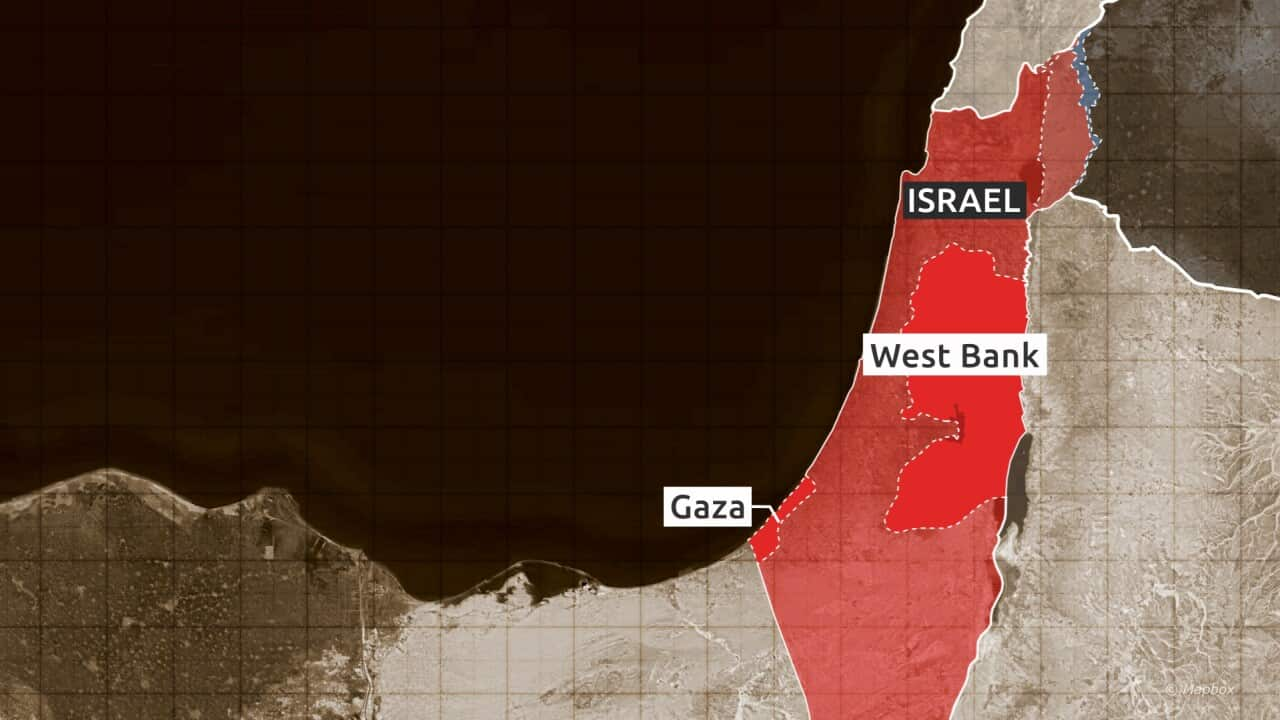Key Points
- Hamas has vowed to respond with 'full force' as Israeli air and ground forces step up operations in the Gaza Strip.
- Internet and mobile phone services were cut off in the Palestinian territory.
- Israel has rejected calls from its closest allies in the West to pause the attacks.
Hamas says its militants in Gaza are ready to confront Israeli attacks with "full force" after Israel's military widened its air and ground attacks on the Palestinian enclave.
The had said its fighters were clashing with Israeli troops in areas near the border with Israel after Israel reported intensified attacks in Gaza.
"The Al-Qassam brigades and all the Palestinian resistance forces are completely ready to confront (Israel's) aggression with full force and frustrate its incursions," Hamas said in a statement early on Saturday.
"Netanyahu and his defeated army will not be able to achieve any military victory," referring to Israeli Prime Minister Benjamin Netanyahu.
Internet, mobile service cut off in Gaza
By Saturday morning, a cut-off in internet and phone services - which telecoms firms and the Palestinian Red Crescent Society said was a result of Israeli bombardments - had been continuing for more than 12 hours.
In a live TV broadcast from Gaza on Saturday morning, an Al Jazeera correspondent said the cut in internet and phone communications was "catastrophic" for rescue efforts after a night of heavy Israeli bombardment.

A Palestinian man walks in front of his destroyed house in Khan Younis, in the southern Gaza Strip. Source: AAP / SOPA Images/Sipa USA
"Gaza is currently blacked out," said Paltel, Gaza's largest telecommunications provider.
The Red Crescent Society said it had lost contact with its Gaza teams and operations room and the Hamas-run government said rescue crews were unable to receive emergency calls.
Médecins Sans Frontières (Doctors Without Borders) said it had been unable to reach some Palestinian colleagues and was worried for "patients, medical staff and thousands of families taking shelter at Al Shifa hospital and other health facilities".
The head of the UN Children's Fund UNICEF, Catherine Russell, said her agency could no longer communicate with staff in Gaza.
Israel steps up air and ground attacks on Gaza
Israel's chief military spokesperson said earlier on Friday that Israeli air and ground forces were stepping up , amid reports of heavy bombing of the besieged enclave.
"In the last hours, we intensified the attacks in Gaza," Rear Admiral Daniel Hagari told a televised news briefing.

A Palestinian sits in his damaged home after an Israeli airstrike in Khan Younis, southern Gaza Strip, Friday. Source: AAP / Fatima Shbair/AP
"In addition to the attacks carried out in the last few days, ground forces are expanding their operations tonight," he said, raising the question of whether a long-anticipated ground invasion of Gaza may be beginning.
Israeli forces have massed outside Gaza, where Israel has been conducting an intense campaign of aerial bombardment since .
Israel says it has killed Hamas' aerial wing leader
The Israeli military said on Saturday it had killed the head of Hamas' aerial wing, who had helped plan the 7 October attack by the Islamist group on Israel's southern towns.
The Israeli Defence Forces said its fighter jets struck Asem Abu Rakaba, head of the Hamas Aerial Array, who was responsible for Hamas' UAVs, drones, paragliders, aerial detection and aerial defence.
"He directed the terrorists who infiltrated Israel on paragliders and was responsible for the drone attacks on IDF posts," the IDF said.
Israel is rejecting calls for respite in Gaza as its have coalesced around the idea of "humanitarian pauses", or temporary stops to the bombardment.
The United Nations General Assembly overwhelmingly backed a resolution drafted by Arab states calling for an immediate humanitarian truce and demanded aid access to Gaza and protection of civilians.
The resolution passed to a round of applause with 121 votes in favour, while 44 - including Australia - abstained. 14 - including Israel and the US - voted no.
Growing international distress at the conditions for 2.3 million people trapped under the heaviest air strikes Israel has ever unleashed on Gaza led major powers this week to call on Israel to allow such pauses to get aid in and Israeli hostages held by Islamist militant group Hamas out.
The issue has opened the first public split between Israel and backers including the United States, the EU, UK and other G7 members such as Japan over the campaign after tight alignment and support in the nearly three weeks since
"Israel is opposed to a humanitarian pause or ceasefire at this time," Lior Haiat, Israel's Foreign Ministry spokesperson, said on Friday, while a senior Israeli official said calls for a pause in fighting appeared in "poor faith."
The chorus of appeals for a pause followed days of intense diplomacy at UN headquarters in New York and in Brussels, and was a compromise between those, such as Spain, who wanted to push Israel to call a ceasefire, and those who say Israel's right to self-defence was foremost.
New York protests shut down rail terminal
In New York late on Friday, hundreds of protesters demanding a ceasefire in the conflict forced officials to close Grand Central Terminal, one of the city's major transit hubs.

Hundreds of people demanding a ceasefire amid the Hamas-Israel war forced the closure of Grand Central Station during a rally organised by Jewish Voice for Peace. Source: AAP / Michael Nigro/Sipa USA
What is the situation in Gaza?
Israel has said it has been preparing a ground invasion of Gaza, but has been urged by the US and Arab countries to delay an operation that would multiply the number of civilian casualties in the densely populated coastal strip and might ignite a wider conflict.
Such an operation would exacerbate what aid groups call a humanitarian crisis in the territory following days of aerial bombardment that Palestinian health authorities in Hamas-run Gaza say has killed more than 7,000 Palestinians.

Israelis take cover as a siren warns of incoming rockets fired from the Gaza Strip, during the funeral of the Israeli man Sagiv Ben Svi, killed by Hamas militants while attending a music festival on 7 October. Source: AAP / Petros Giannakouris/AP
Concerns about the risk of a wider Middle East conflict have risen in recent days with the US dispatching more military assets to the region as Israel pummelled targets in Gaza and Hamas supporters in Lebanon and Syria.
Israeli leaders have vowed to wipe out Hamas, the Islamist movement that has run Gaza since 2007, and kill the leaders and planners of the 7 October assault, undeterred by pleas from humanitarian agencies to spare the civilian population.
Much of the infrastructure of Gaza, which has been living under blockade by Israel and Egypt since 2007, has been shattered by the Israeli bombing.
Power has been cut for days, crippling treatment facilities and depriving Gazans of fresh water, while half of its housing stock has been damaged and 20,000 residential units destroyed or rendered uninhabitable, according to the Hamas media office.
With Israel keeping up daily bombardments that laid waste to swathes of the densely populated strip, Palestinians said they received renewed to move from Gaza's north to the south to avoid the deadliest theatre of the war.
Gazans say making the journey south remains highly risky amid air strikes and that southern areas have also been bombed.
Many families have refused to leave their homes, fearing a repeat of the experience of previous wars with Israel when Palestinians who left their homes and land were never able to return.
The significant escalation is the latest in a long-standing conflict between Hamas and Israel.
Hamas is a Palestinian military and political group, gaining power in the Gaza Strip since winning legislative elections there in 2006.
Hamas’s stated aim is to establish a Palestinian state, while refusing to recognise Israel’s right to exist.
Hamas, in its entirety, is designated as a terrorist organisation by countries including Australia, Canada, the UK and the US.
Some countries list only its military wing as a terrorist group.
The UN though did not condemn Hamas in its entirety as a terrorist organisation, due to insufficient support from member states to do so during a 2018 vote.












